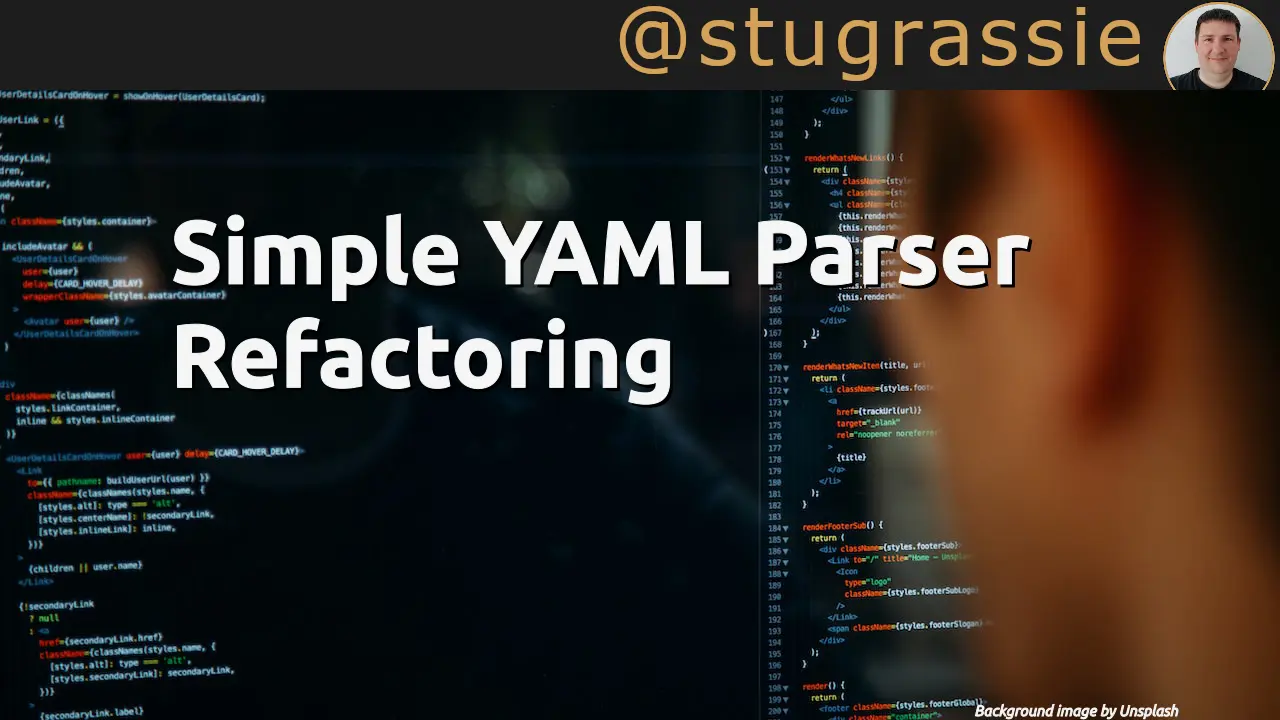After reviewing the code for the simple YAML parser I wrote, I decided it was getting a little messy, so before continuing, I decided to refactor it a little bit.
The simples thing to do was to separate the serialisation and the deserialisation into separate classes, and simple call those from within the YamlConvert class in the existing methods. This approach tends to be what other JSON and YAML libraries do, with added functionality such as being able to control aspects of the serialisation/deserialisation process for specific types.
I currently don’t need, or want, to do that, as I’m taking a much more brute force approach - however it is something to consider for a future refactor. Maybe.
I ended up with the following for the YamlConvert:
public static class YamlConvert
{
private static YamlSerialiser Serialiser;
private static YamlDeserialiser Deserialiser;
static YamlConvert()
{
Serialiser = new YamlSerialiser();
Deserialiser = new YamlDeserialiser();
}
public static string Serialise(YamlHeader header)
{
return Serialiser.Serialise(header);
}
public static YamlHeader Deserialise(string filePath)
{
if (!File.Exists(filePath)) throw new FileNotFoundException("Unable to find specified file", filePath);
var content = File.ReadAllLines(filePath);
return Deserialise(content);
}
public static YamlHeader Deserialise(string[] rawHeader)
{
return Deserialiser.Deserialise(rawHeader);
}
}It works quite well, as it did before, and looks a lot better. There is no dependency configuration to worry about, as I mentioned above I’m not worried about swapping out the serialisation/deserialisation process at any time.

